It’s been a while since we heard from the folks behind Albina Vision Trust, the ambitious effort to recreate the vibrant Albina neighborhood that was decimated by the construction of Interstate 5 and Memorial Coliseum in the 1960s.
In the past two years the Albina Vision has become mostly known as a political football in the march to expand the very same freeway responsible for its demise. Now it’s time to center the vision itself and the nonprofit group working to realize it invites you to attend a community design workshop on Monday (12/21).
According to the event website, the plan is to have attendees help brainstorm and envision what the new Albina should look like. Here’s more:
The Albina Vision Trust is engaged in honoring Albina’s past by transforming what exists today into a socially and economically inclusive community of residents, businesses, artists, makers, and visitors. We want to learn from you – our neighbors, friends, loved ones, mentors and colleagues – what this looks like to you.
Advertisement
The workshops will share the current vision for how spaces within the site might be used and ask for your input on its new living, community, and business spaces. Your hosts will be the artist/musician Bobby Fouther and Black Resilience Fund Co-founder Cameron Whitten.
Register for the free event here. Albina Vision Trust has also launched their first-ever survey, which you can take online here.
— Jonathan Maus: (503) 706-8804, @jonathan_maus on Twitter and jonathan@bikeportland.org
— Get our headlines delivered to your inbox.
— Support this independent community media outlet with a one-time contribution or monthly subscription.



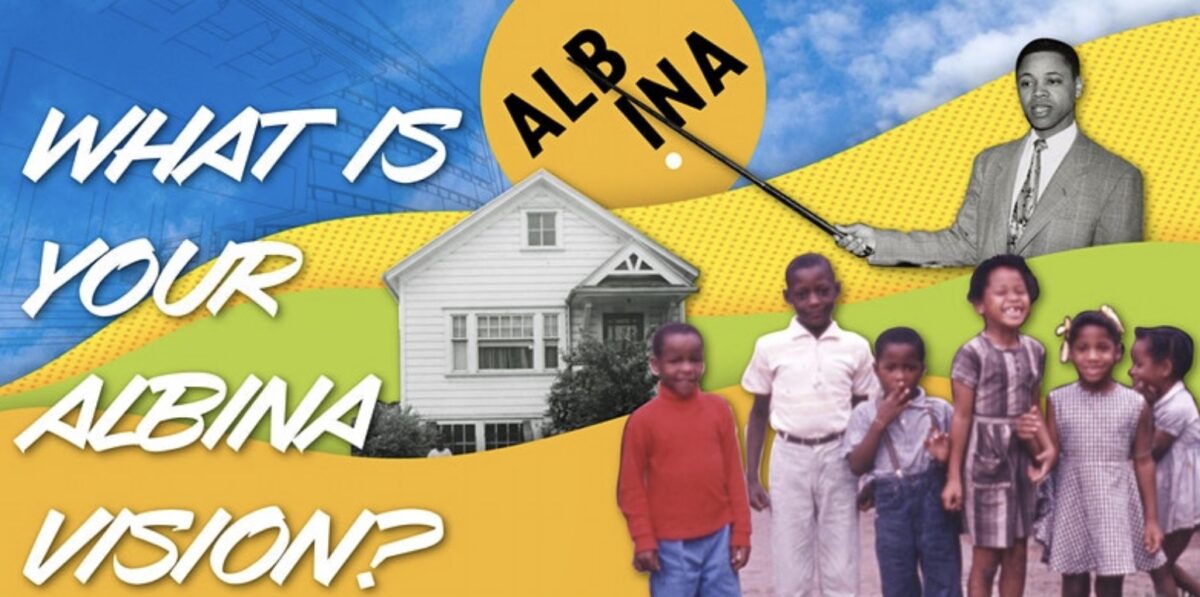
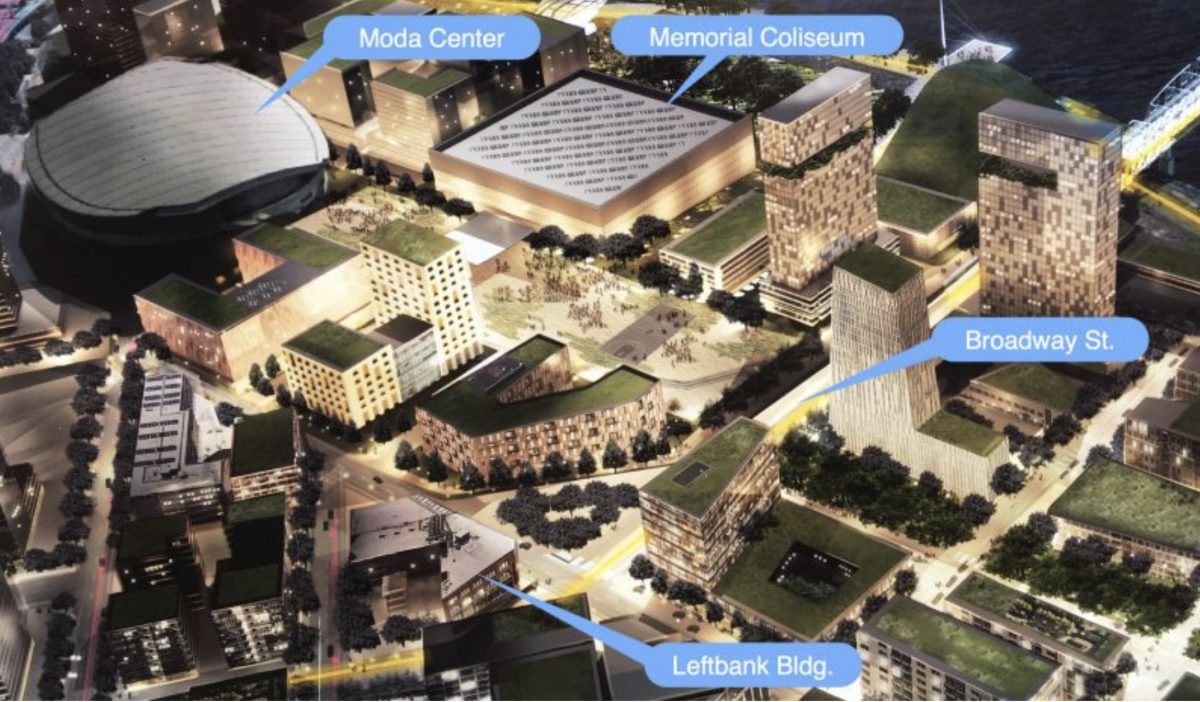
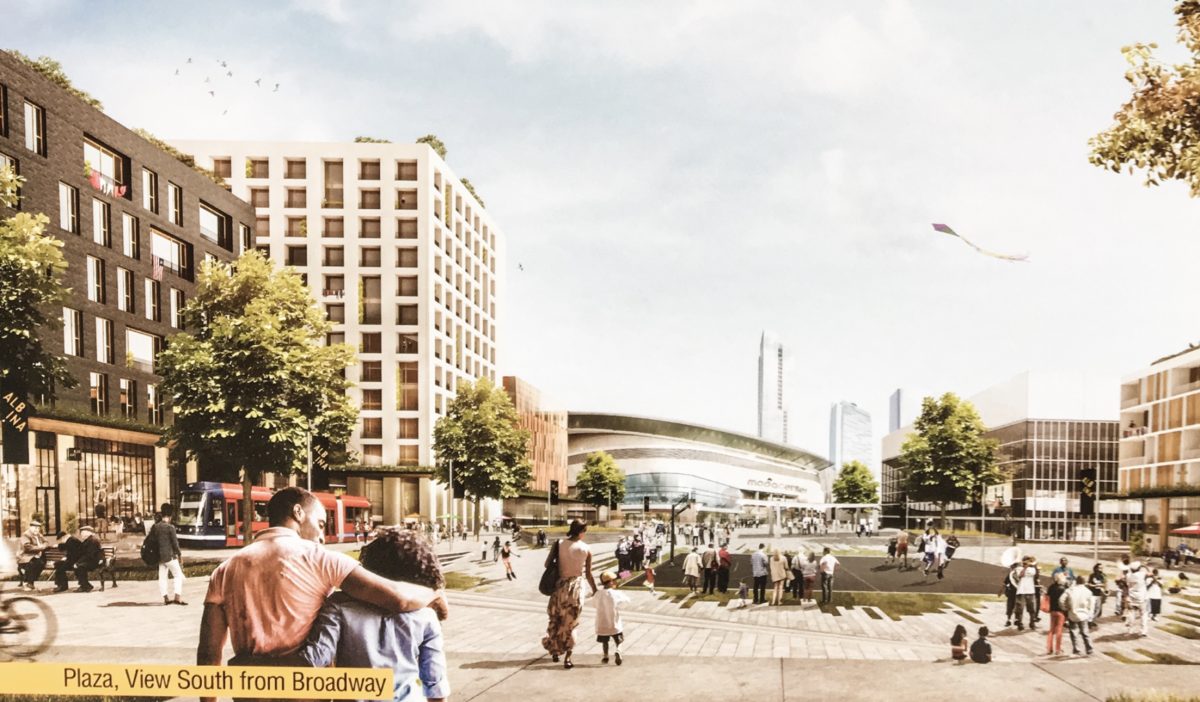
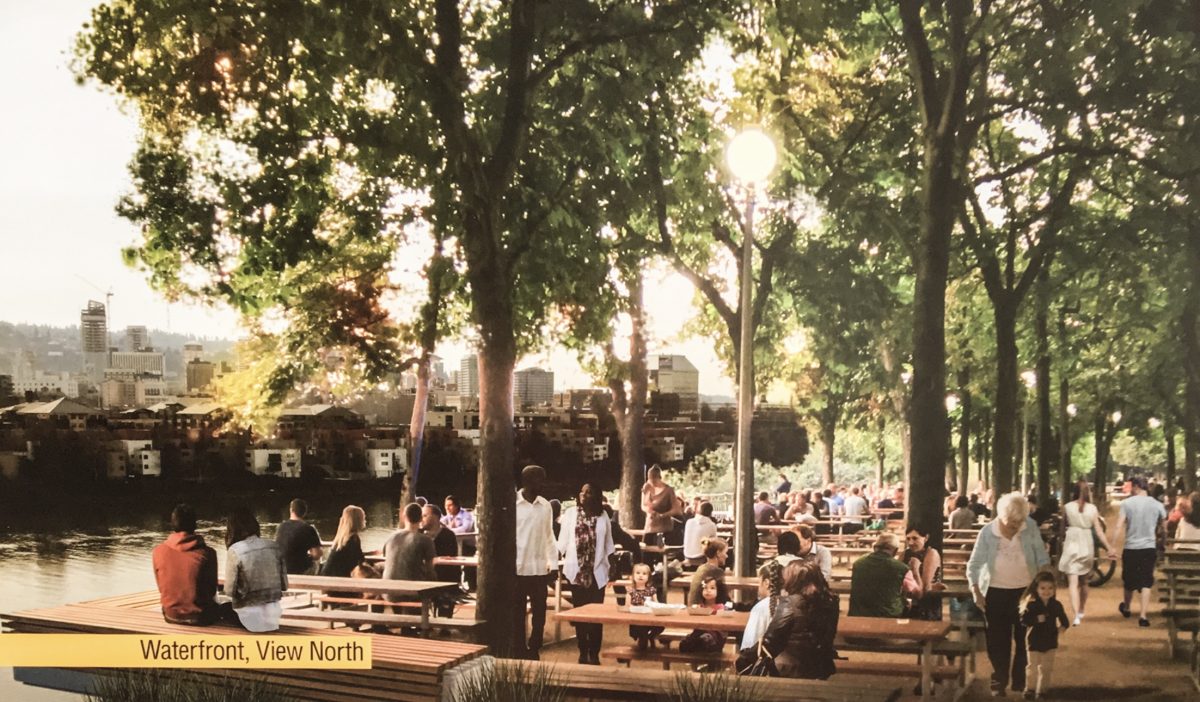
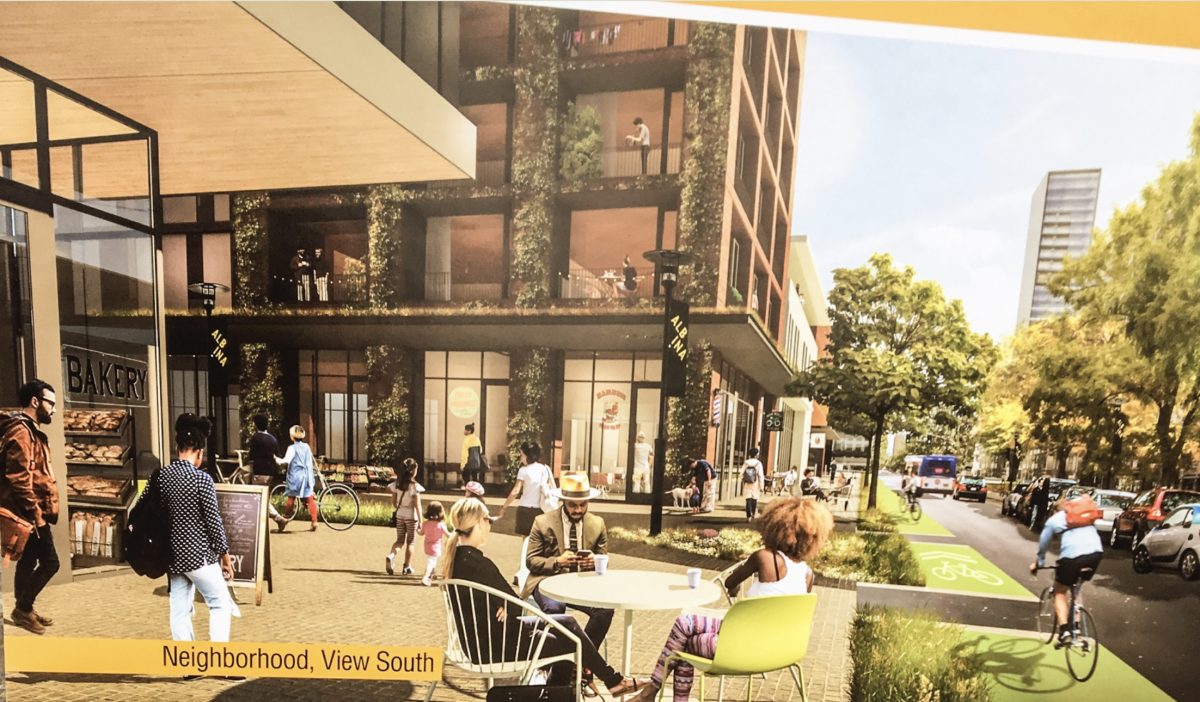
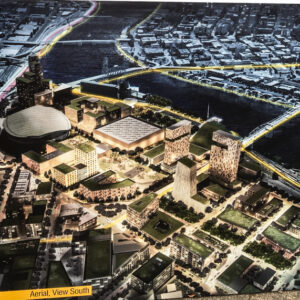



Thanks for reading.
BikePortland has served this community with independent community journalism since 2005. We rely on subscriptions from readers like you to survive. Your financial support is vital in keeping this valuable resource alive and well.
Please subscribe today to strengthen and expand our work.
Is the goal here to attract formerly displaced residents and their families back to the area – which was primarily Black?
I’m curious as to the mechanisms for doing that. Most of the other new development in the area has been populated by non-Black residents.
If the intent is simply “honoring the district’s history and African-American/Black community roots, and celebrating it into the future” then it will just seem like a bunch of woke white folks feeling good about themselves for living in an area that pats itself on the back for mentioning past history.
Maybe the local community can engage in self-gentrification? Avoid becoming again a low-status community of drug stores, community centers, mini-marts, and boarded-up homes? Identify as BIPOC even if they aren’t?
Out here in NC I’ve met lots of other ex-Portlanders, including many blacks, and most do not want to return to the open racism and denial of local history they encountered while living there (plus the gloomy rainy winters).
I’ve got a handful of black neighbors I am friendly with. I don’t tiptoe around race and often ask them direct questions like “what do you think of the Progressives here”. Many answers I get center around “their concern is appreciated but they think they know what is best for us and it’s demeaning”.
Tear down I-5 and give it back to the families it was stolen from….
You mean give it back to the families it was purchased from…
Kitty. I’m going to force purchase your home. I bet you’d like that. I’ll tear down all of the churches/ schools/ markets/ family owned businesses in your neighborhood, and put in a huge/loud/polluting highway.You can point out (only) that I paid you for my purchase.
That would definitely suck. There is no question about that. Eminent domain is a power that should be rarely if ever used.
However, if I get paid for my house, then I can’t really say it was stolen, and I don’t really have the right to ask that I get the land back later.
Actually, you do have a right to ask for it back, plus lost revenues. Here in NC the state DOT was successfully sued for retaining hundreds of square miles of unused right-of-way “bought” using eminent domain in the past. They now not only have to give back the land to the owners and their descendants, but also pay just compensation for lost revenue during the intervening years and of course various lawyer fees, to the tune of several billion dollars they don’t have. On the plus side, lots of useless highway projects have come to a screeching halt, but on the negative side, they took away our state transit subsidies and bike/ped money to pay for unfinished highway projects that were already under construction.
That is obviously a misuse of ED as the land taken was not used for the public “good”. In the case of Albina, the land was used.
Ride up Williams and take a look at the empty lots that were bulldozed for the Hospital.
I was looking at I-5.
David, what was the legal reasoning in the NC case?
If people have a legal claim, I have no problem with them taking their case to court.
“Stolen” doesn’t quite fit when compared to standard instances of stealing, but then again “purchased” doesn’t quite fit either.
In plannerese, land acquired through eminent domain is typically referred to as a “takings” (including the unnecessary plural).
Yes, and the constitution requires “just compensation” be paid when property is “taken for public use”.
The thing that is missing for me in this conversation is under what theory are people whose property was taken owed more? Is it that they were unjustly compensated in this particular case? Or are all people who’ve had property taken owed additional compensation?
I would love to hear a well considered argument about why we should be paying more to those whose property was taken for I-5. If anything, those whose property was not taken and got no compensation, just a new highway next to their house, deserve something for their lost value (which would, of course, lead to a never-ending series of claims by people who felt their property was devalued by something the government did or did not do).
Replying only to HK’s “just compensation”–I think “market value” is very generally what’s considered “just compensation”. But a family’s home can have a much greater value to them than the market value. What a person is paid in a takings situation may be enough to allow you to buy a house of similar size and condition in a similar neighborhood, but may come nowhere close to compensating for what was lost.
I totally agree. But if the issue is generational wealth, market value is what matters. Presumably the records still exist to prove (or disprove) any underpayment.
I want to make clear that I do not like the use of eminent domain to take property, even in modern cases like the Orange line or the proposed Barbur Blvd. project. I don’t like highway construction. I don’t like forcing people to sell their homes. I don’t like any of it. But if you want to make a monetary claim, you’ve got to be clear on what you want and why you’re entitled to it. “I don’t like what happened to my parents’ (or grandparents’) neighborhood 60 years ago” sounds pretty weak to me. “My family was shortchanged, and here’s the proof” is something I (and, more importantly, a judge) can get behind.
Assuming the county still has it’s property records from that era, all the data is there to make a case, if there is one to be made.
There are multiple articles on how ODOT and Legacy has taken land at a massive discount. It’s icky all the way around. If Oregon wants to truly walk away from their racist roots, it needs to be addressed in a monetary and bureaucratic way. Otherwise, wounds will fester.
Portland will be forever afflicted until amends are made and reparations paid. And…to that end, Legacy needs to pay too.
https://eliotneighborhood.org/2017/09/06/emanuel-apologizes/
Exactly that. ED does not pay out well – unless the owner is connected.
What was “market value” in a red lined district where black folks weren’t allowed bank loans?
“Is it that they were unjustly compensated in this particular case?”
I’d guess the odds that black property owners in 1960s Portland were unjustly compensated are about 100%.
And how many of those specific individuals (actual owners) are still around?
As for I-5, it was paid for with tax dollars – we are all owners now 🙂
Doesn’t matter. We don’t give inheritance to the state. Paying actual value today is a start in righting the wrong.
What is the chance the input is dominated by white people, who moved to Portland between five minutes and five years ago, looking for opportunities to gentrify the memory of Albina into a sort of co-working co-living one-step-past-student-housing project for the white, well educated, upwardly mobile, fit and carless 18-28 set?
I have seen effective public engagement focused on communities of color, but it requires affirmatively excluding white participants from at least a part of the process.
At least someone can admit this 🙂
If people want Albina to be rebuilt again and be a predominantly Black neighborhood, the process itself will have to be “racist” (I mean this in a sense of “preference given to Black people”) in order to deliver the desired result. Nobody wants to admit that. I’m also not saying there is anything wrong with that – sometimes some things shouldn’t be “fair” to all.
Black people don’t have the power to be racist. Black people can be prejudiced.
I think the word you’re looking for is “exclusionary”.
Anyone can be racist; I think the concept you’re looking for is “systemic racism”. Black people can (and do) take part in systems of oppression.
I didn’t participate in the workshop. I feel that people who are not black should stand back, stay quiet, and let black Portlanders have the floor on what happens to Albina.